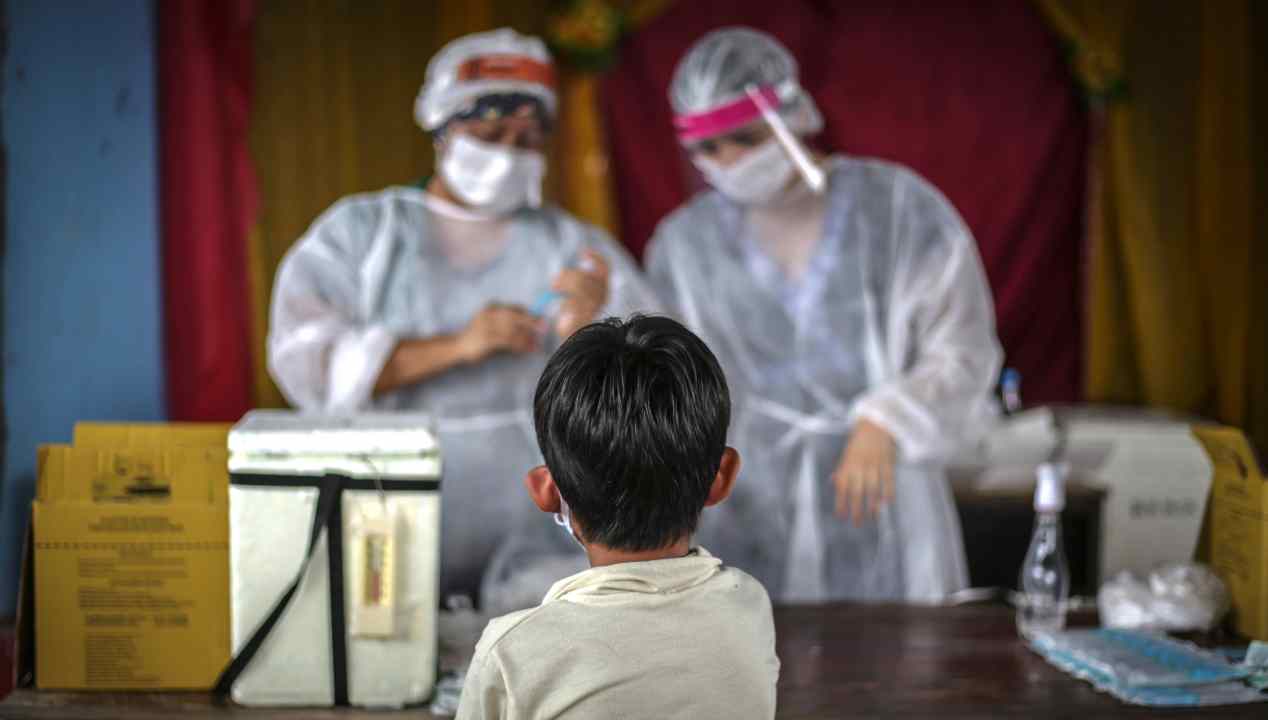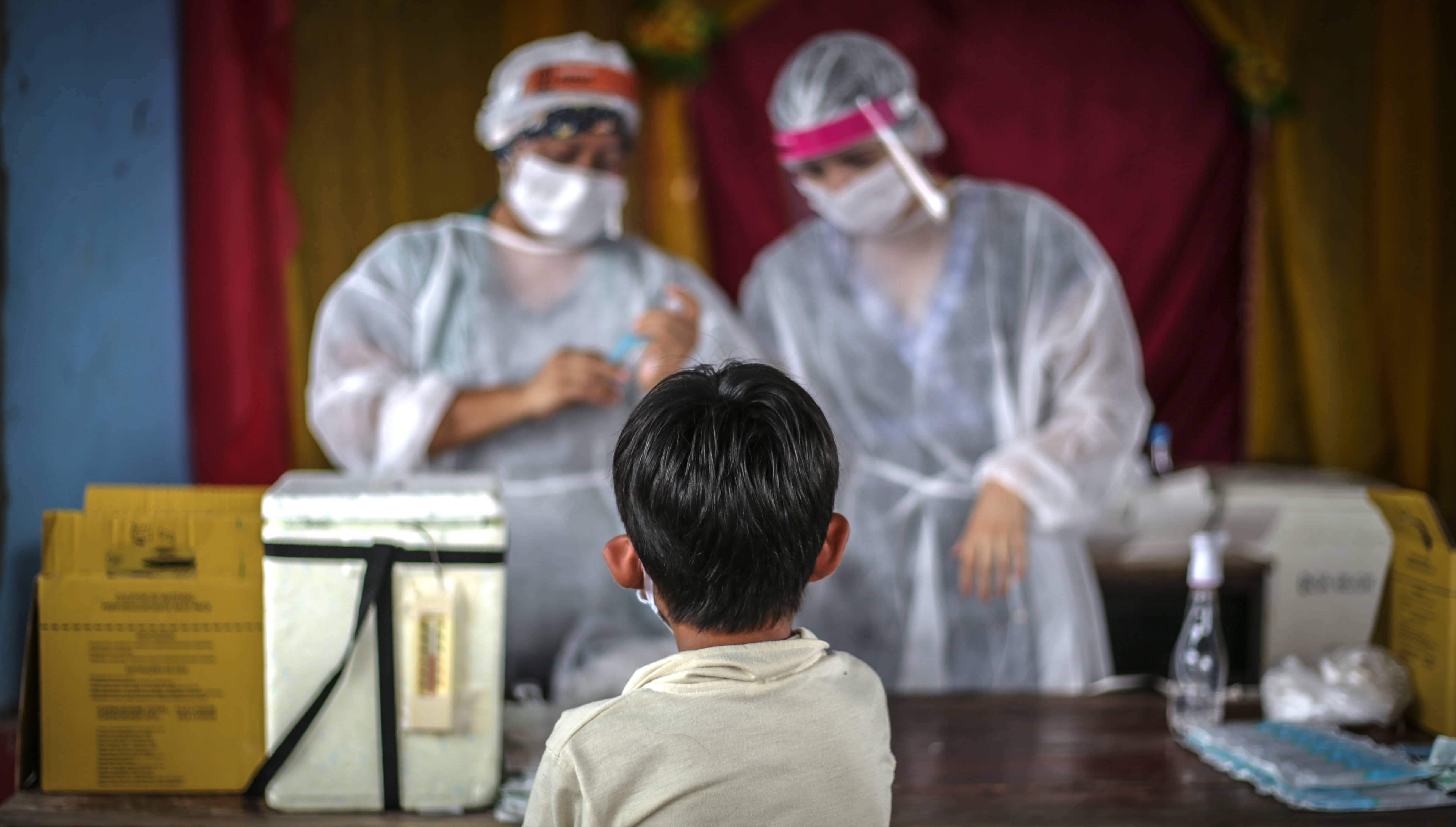Should we be vaccinating children against Covid-19? While some countries have been enthusiastically administering vaccines to under-18s — greatly contributing to their overall vaccination rate — the idea has greeted more coolly in Britain. The government and the NHS were relatively slow in making Covid vaccines available to 16 to 18-year-olds — although it was approved.
Although we are still awaiting a formal government decision on jabbing 12 to 15-year-olds, the Joint Committee on Vaccination and Immunisation has recommended that members of this age group only be offered a vaccine if they are especially vulnerable to the virus, citing the risk of myocarditis — an inflammation of the heart muscle — following receipt of the Pfizer vaccine. However, Health Secretary Sajid Javid yesterday said a decision would be coming soon on jabs for these younger teens, while ministers are said to be optimistic jabs will be approved. The AstraZeneca vaccine is already being withheld from under-40s due to the risk of potentially fatal blood clots which have already killed 72 people — and which appear to be more common in younger age groups.
Over a 120-day period, the study found that boys between 12 and 15 had a risk of cardiac issues that was four to six times as high as the risk of being hospitalised with Covid-19
One thing that may swing Javid’s decision is a new US study which attempts to quantify the risk of myocarditis after receipt of an mRNA vaccine (including Pfizer and Moderna).

Britain’s best politics newsletters
You get two free articles each week when you sign up to The Spectator’s emails.
Already a subscriber? Log in








Comments
Join the debate for just £1 a month
Be part of the conversation with other Spectator readers by getting your first three months for £3.
UNLOCK ACCESS Just £1 a monthAlready a subscriber? Log in